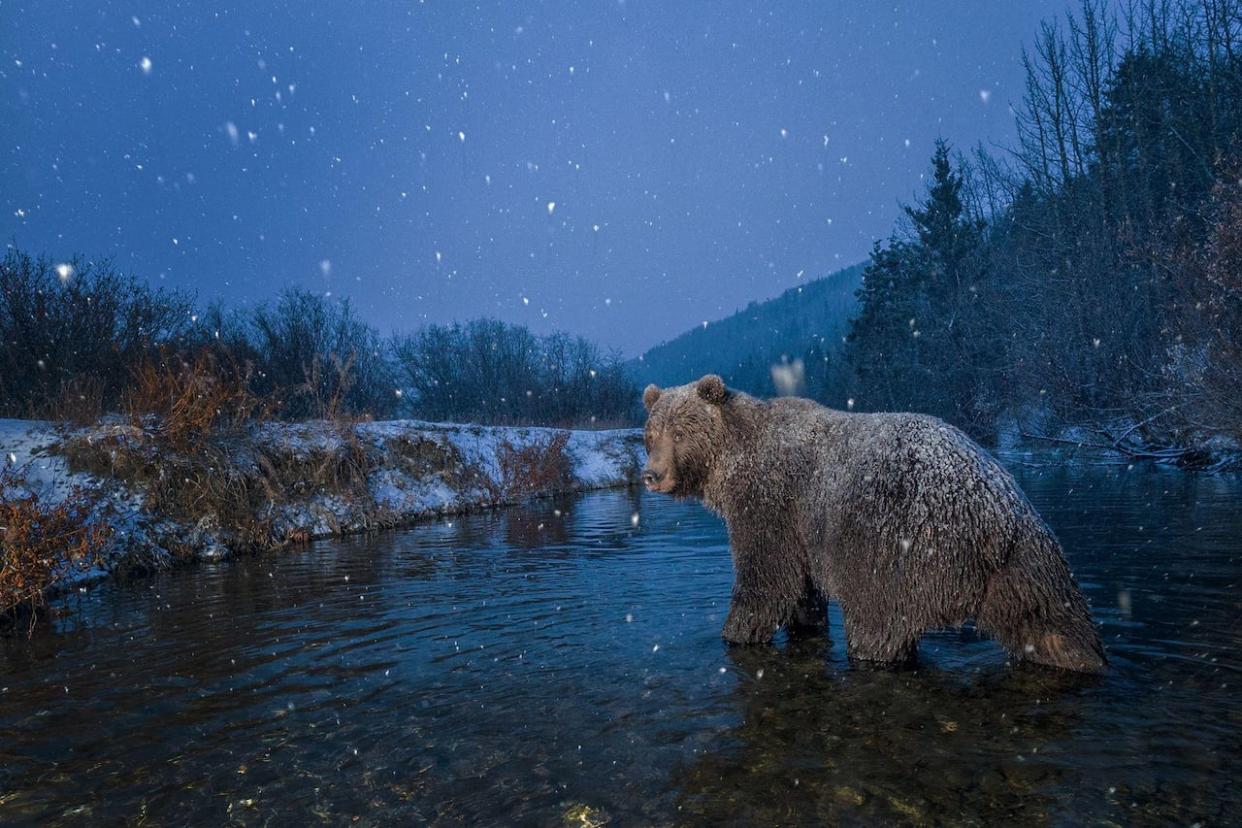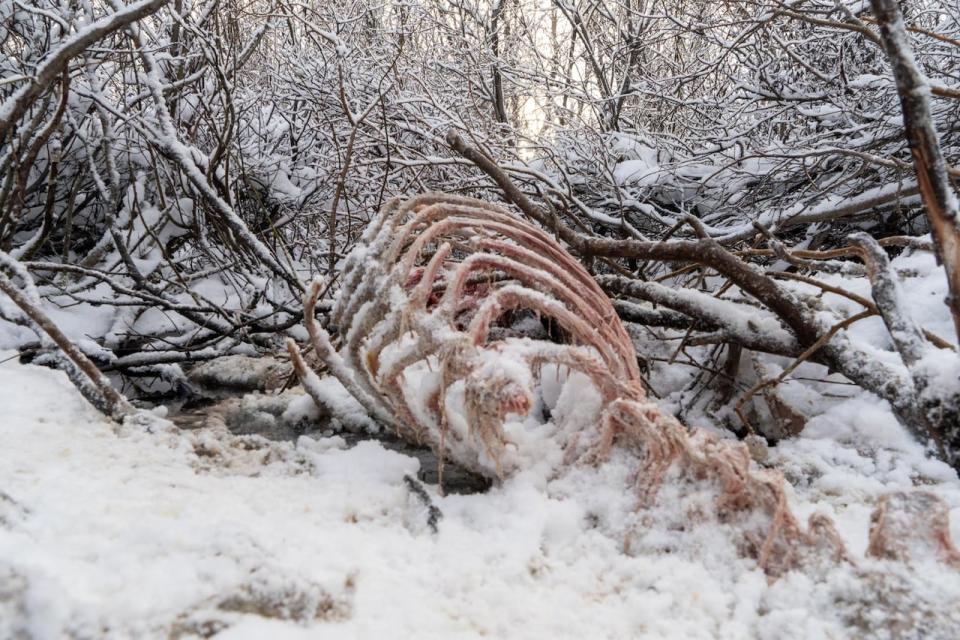Yukon Crown drops charges laid after grizzly bear killed near Klukshu last year

Charges laid against a Yukon hunter after a grizzly bear was killed near the traditional fishing village of Klukshu last year have been dropped.
Scott Damsteegt was facing a count each under the Yukon's Wildlife Act of hunting a grizzly bear when he was not permitted to and careless use of a firearm, with court documents alleging an offence date of Nov. 8, 2023.
Damsteegt's first court appearance was March 26. The next entry in the court file is an April 16 letter from the territorial Crown Lee Kirkpatrick entering a stay of proceedings on both charges.
No reasons were offered for entering the stay. Kirkpatrick, reached by email, declined to comment.
CBC News was not able to reach Damsteegt for comment.
Yukon environment department spokesperson Linea Volkering said in an email that conservation officers have also closed their file. She did not respond to follow-up questions about whether the kill was ultimately found to be legal.
Champagne and Aishihik First Nations elder Chuck Hume, who lives in Klukshu for most of the summer and drops in during the rest of the year, said the news of the charges being stayed was "quite disappointing."
Besides the loss of the bear, Hume said it was a safety concern to be firing a gun near the village and particularly around the creek, which is an important fishing and berry-picking area for his First Nation.
"It's a place, you know, where we teach our grandchildren, and discharging a firearm or shooting… The bear [also] could have been possibly wounded and somebody could have got hurt," he said.
"We'd like people to refrain from hunting in that area."
Hume said he'd like to see a two-kilometre-radius established around Champagne and Aishihik communities, including Klukshu, where shooting isn't allowed, for the safety and protection of everyone.
Hume also believed that the bear that was killed was a large grizzly known as "The Mayor," who he'd trained to stay on the side of the creek away from people and who kept more problematic bears out of the village. However, he said that wouldn't be definitely confirmed until the fall, when The Mayor would typically return to the creek to feed on migrating salmon.
"We've always understood that we have to keep a big grizzly in our community, and he wards off the younger ones, the nuisance ones that come in, and kind of holds the roost there," Hume said, adding that his First Nation has had an important relationship with grizzly bears for generations.
'For me, charges don't bring that bear back'
Meanwhile, Yukon photographer Peter Mather, who was among the first people to discover the grizzly carcass last November, said in a separate interview that he was still "really saddened" by the situation, but not because of the outcome of the legal case.
"For me, charges don't bring that bear back," said Mather, who's spent extensive time documenting the bears that live in and around Klukshu.
"For just myself, personally… It's more the emotional aspect of, you know, losing that bear who I knew a little bit and who a lot of other people that live at Klukshu knew pretty well."

Photographer Peter Mather found the carcass in November. Soon after, Yukon conservation officers said a licensed hunter had been charged in connection with the carcass. (Peter Mather)
Mather said he believed the bear was hunted for trophy purposes because the animal's head, hide and claws were missing from the kill site, and that he hoped the situation would spark a conversation about trophy and show-hunting bears in the territory.
However, Mather said there was a glimmer of hope — while spending time in Klukshu over the winter, he learned about a "tall, huge, lanky" bear in the area that locals have dubbed, "The King."
"I'm really hoping that, you know, if The Mayor is gone, that hopefully The King can take over that area and that he finds that good balance between the community and all the smaller bears," Mather said.
"I hope there's a renewal of that kind of relationship, and Chuck [Hume] teaches him the rules, and everybody's able to kind of live together like they always have been out there."


